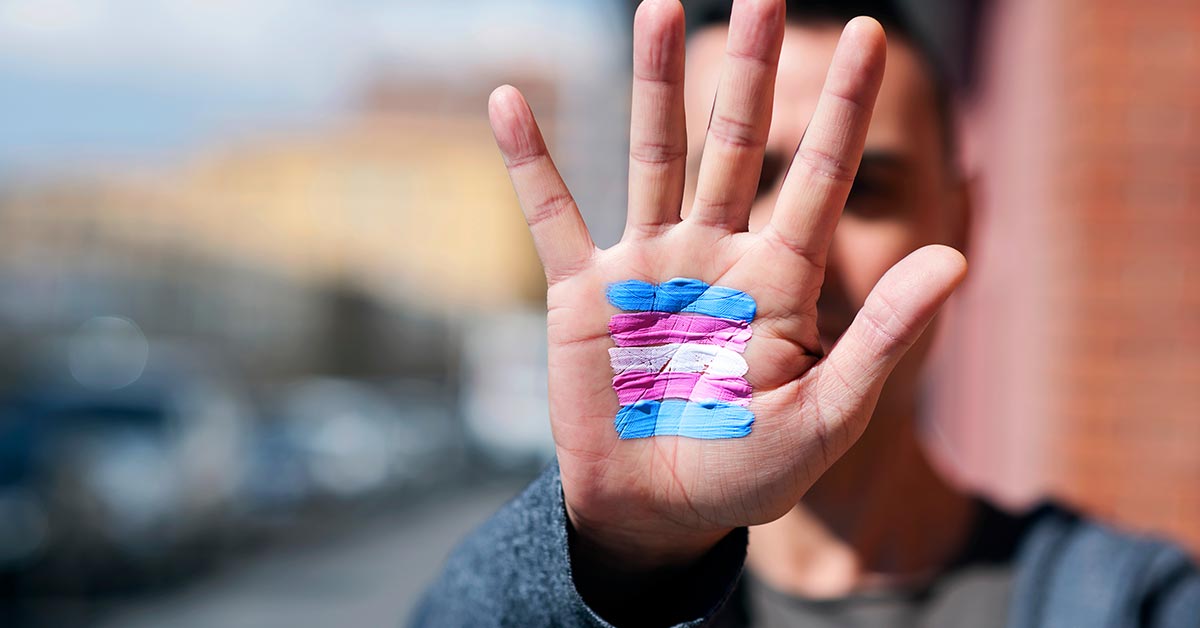Trans Day of Visibility | SA government blocking trans recognition & visibility

March 31, 2021 marks the 12th Trans Day of Visibility. Yet, despite well over a decade of celebrating the growing visibility of transgender and gender diverse individuals around the world, many transgender South Africans remain invisible.
According to LGBTI+ group Iranti, this reality will not change as long as inconsistent, inept and discriminatory government bureaucracy continues to refuse to recognise their existence.
It is therefore calling on the South African government to speed up processes to review South Africa’s ID management system. To this end, Iranti made a submission to the Department of Home Affairs (DHA) to support the adoption of a new ID Management Policy that allows for a third unspecified gender option, in addition to the male/female binary.
“This new ID Management Policy is an important step but it is only the first step to ensuring visibility of transgender and gender diverse,” said Iranti Programme Officer Sibusiso Kheswa.
“The systemic failures of the Department of Home Affairs and the Department of Health continue to harm transpersons. The government must end transphobia with urgency,” said Kheswa.
The organisation believes that the Alteration of Sex Description and Sex Status Act 49 of 2003 suffers from a lack of accompanying directives, a narrow pathologised interpretation and widespread discriminatory implementation. Given this, transgender and gender diverse people in South Africa regularly experience human rights violations.
South Africa should instead have a model of legal gender recognition that enables all individuals in South Africa to have their gender legally recognised and is based on self-determination and self-declaration.
Iranti has demanded that the Department of Home Affairs urgently begin the process of reviewing and amending Act 49 to allow all trans and gender diverse persons in South Africa their right to bodily autonomy and self determination.
Demanding that transgender people ‘prove’ their gender is unfair, degrading and inhumane
“To apply for a change of gender markers, Act 49 requires medical letters confirming that the applicant has undergone medical or surgical treatments,” explained Kheswa.
“Firstly, this is outdated as internationally there has been a shift in terms of recognition of gender identity of trans and gender diverse persons, and protection of their human rights. Secondly, only the privileged few who can meet these requirements as hormonal replacement therapy, and gender-affirming surgeries are not readily available in the public health system. Making these demands on transgender people to ‘prove’ their gender is unfair, degrading and inhumane,” he added.
Iranti is calling on the Minister to issue a Directive to the DG of Home Affairs to produce a Standard Operations Procedure (SOP) by 1 April 2021 around the implementation of the current law which will force Home Affairs staff to apply Act 49 fairly and efficiently. In the absence of policy on the matter, an SOP would force Home Affairs staff to apply Act 49 fairly and efficiently, rather than letting personal biases inform whether or not the law is effectively enforced.
Iranti is also asking the Department of Home Affairs to fast-track the countless delayed amendments to gender-markers and forenames currently sitting in a backlog.
In August 2020, an Iranti survey found that that members of transgender and non-binary communities still faced high levels of violence and discrimination. It highlighted the intersecting oppressions, aggressions and inconveniences faced by trans people in school, seeking employment, or incarcerated at correctional facilities.
When asked if they felt they had experienced violations because their documentation does not match their gender expression, respondents reported experiencing abuse, violence, healthcare discrimination, employment discrimination, bullying, and more.
“On this important day, we demand a clear and public commitment of support for transgender, gender-diverse and intersex human rights. But urgent action is required above and beyond proposals for policy reform. Until such time as government is serious about this matter, trans and intersex persons are not protected in South Africa,” Kheswa added.
Leave a Reply